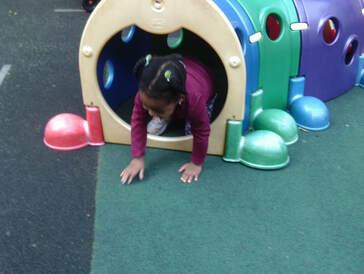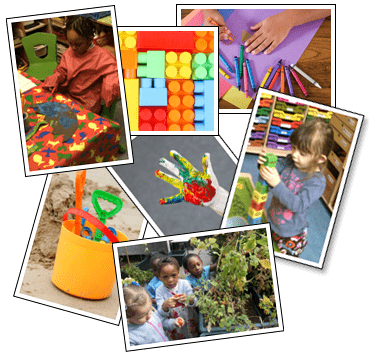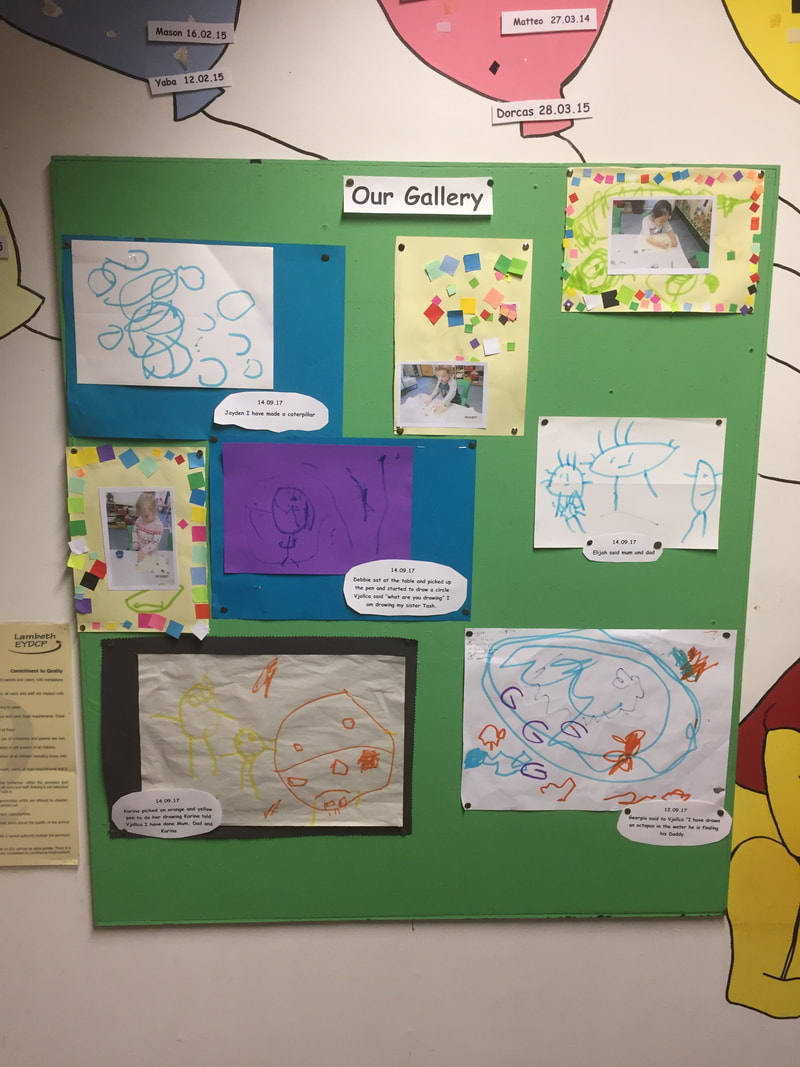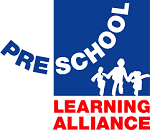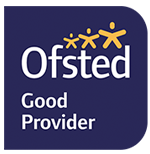Activities AND FACILITIES

At Hurley Pre-School, children have the opportunity to play with sand, water and paint. We have a Home Corner, Book Corner, Ball Pond / Pit and a Soft Play area (including a Bouncy Castle), Sensory and Relaxation Room, and several tablets. Children can construct, be creative and lots more.
We have an all-weather outside play area that encourages children to expree themselves and develop a variet of skills with a number or resources. Weather permitting we try to use this space as much as possible. This includes our own forest area for children to explore, and a Planting Area where they can grow all types of fruit and vegetables.
The children are offered a wide range of activities to enable them to develop and learn through play, and follow the Early Years Foundation Stage which supports them in the following areas:
We have an all-weather outside play area that encourages children to expree themselves and develop a variet of skills with a number or resources. Weather permitting we try to use this space as much as possible. This includes our own forest area for children to explore, and a Planting Area where they can grow all types of fruit and vegetables.
The children are offered a wide range of activities to enable them to develop and learn through play, and follow the Early Years Foundation Stage which supports them in the following areas:
Early Years Foundation Stages
From time to time, we offer special activities for the children such as Music and Sport Sessions, and children are taken on local outings and to places of interest (including Legoland).
Each child is allocated a keyworker, who gives them opportunities to work in small groups. Records are regularly kept regarding each child’s progress, and parents can make appointments to speak to their child’s keyworker to discuss any issues.
To read more please scroll down
Each child is allocated a keyworker, who gives them opportunities to work in small groups. Records are regularly kept regarding each child’s progress, and parents can make appointments to speak to their child’s keyworker to discuss any issues.
To read more please scroll down
kEYWORKERS
Every child is allocated a member of staff as a key worker, this member of staff is responsible for making detailed observations and including these in their reports. We encourage parents to discuss their childs development with their responsible keyworker as often as possible.
Personal, Social and Emotional Development
Making Relationships
Early Learning Goal:
Children play co-operatively, taking turns with others.
Theytake account of one another’s ideas about how to organise their activity.
They show sensitivity to others’ needs and feelings, and form positive relationships with adults and other children.
Self-Confidence and Self-Awareness
Early Learning Goal:
Children talk about how they and others show feelings, talk about their own and others’ behaviour, and its consequences, and know that some behaviour is unacceptable.
They work as part of a group or class, and understand and follow the rules.
They adjust their behaviour to different situations, and take changes of routine in their stride.
Managing Feelings and Behaviour
Early Learning Goal:
Children play co-operatively, taking turns with others.
Theytake account of one another’s ideas about how to organise their activity.
They show sensitivity to others’ needs and feelings, and form positive relationships with adults and other children.
Early Learning Goal:
Children play co-operatively, taking turns with others.
Theytake account of one another’s ideas about how to organise their activity.
They show sensitivity to others’ needs and feelings, and form positive relationships with adults and other children.
Self-Confidence and Self-Awareness
Early Learning Goal:
Children talk about how they and others show feelings, talk about their own and others’ behaviour, and its consequences, and know that some behaviour is unacceptable.
They work as part of a group or class, and understand and follow the rules.
They adjust their behaviour to different situations, and take changes of routine in their stride.
Managing Feelings and Behaviour
Early Learning Goal:
Children play co-operatively, taking turns with others.
Theytake account of one another’s ideas about how to organise their activity.
They show sensitivity to others’ needs and feelings, and form positive relationships with adults and other children.
Physical Development
Moving and Handling
Early Learning Goal:
Health and Self Care
Early Learning Goal:
Early Learning Goal:
- Children show good control and co-ordination in large and small movements.
- They move confidently in a range of ways, safely negotiating space.
- They handle equipment and tools effectively, including pencils for writing.
Health and Self Care
Early Learning Goal:
- Children know the importance for good health of physical exercise, and a healthy diet, and talk about ways to keep healthy and safe.
- They manage their own basic hygiene and personal needs successfully, including dressing and going to the toilet independently.
Communication and Language
Listening and Attention
Early Learning Goal:
Early Learning Goal:
Early Learning Goal:
Early Learning Goal:
- Children listen attentively in a range of situations.
- They listen to stories, accurately anticipating key events and respond to what they hear with relevant comments, questions or actions.
- They give their attention to what others say and respond appropriately, while engaged in another activity.
Early Learning Goal:
- Children follow instructions involving several ideas or actions.
- They answer ‘how’ and ‘why’ questions about their experiences and in response to stories or events.
Early Learning Goal:
- Children express themselves effectively, showing awareness of listeners’ needs.
- They use past, present and future forms accurately when talking about events that have happened or are to happen in the future.
- They develop their own narratives and explanations by connecting ideas or events.
Literacy
Reading
Early Learning Goal:
Early Learning Goal:
Early Learning Goal:
- Children read and understand simple sentences.
- They use phonic knowledge to decode regular words and read them aloud accurately.
- They also read some common irregular words.
- They demonstrate understanding when talking with others about what they have read.
Early Learning Goal:
- Children use their phonic knowledge to write words in ways which match their spoken sounds.
- They also write some irregular common words.
- They write simple sentences which can be read by themselves and others.
- Some words are spelt correctly and others are phonetically plausible.
Mathematics
Numbers
Early Learning Goal:
Early Learning Goal:
Early Learning Goal:
- Children count reliably with numbers from one to 20, place them in order and say which number is one more or one less than a given number.
- Using quantities and objects, they add and subtract two single-digit numbers and count on or back to find the answer.
- They solve problems, including doubling, halving and sharing.
Early Learning Goal:
- Children use everyday language to talk about size, weight, capacity, position, distance, time and money to compare quantities and objects and to solve problems.
- They recognise, create and describe patterns.
- They explore characteristics of everyday objects and shapes and use mathematical language to describe them.
Understanding the World
People and Communities
Early Learning Goal:
Early Learning Goal:
Early Learning Goal:
Early Learning Goal:
- Children talk about past and present events in their own lives and in the lives of family members.
- They know that other children don’t always enjoy the same things, and are sensitive to this.
- They know about similarities and differences between themselves and others, and among families, communities and traditions.
Early Learning Goal:
- Children know about similarities and differences in relation to places, objects, materials and living things.
- They talk about the features of their own immediate environment and how environments might vary from one another.
- They make observations of animals and plants and explain why some things occur, and talk about changes.
Early Learning Goal:
- Children recognise that a range of technology is used in places such as homes and schools.
- They select and use technology for particular purposes.
Expressing Arts and Design
Exploring and Using Media and Materials
Early Learning Goal:
Early Learning Goal:
Early Learning Goal:
- Children sing songs, make music and dance, and experiment with ways of changing them.
- They safely use and explore a variety of materials, tools and techniques, experimenting with colour, design, texture, form and function.
Early Learning Goal:
- Children use what they have learnt about media and materials in original ways, thinking about uses and purposes.
- They represent their own ideas, thoughts and feelings through design and technology, art, music, dance, role play and stories.
About Us |
Management |
Admissions |
Opening Hours |
Activities |
News |
Copyright 2024 - Hurley Pre-School - Nursery- Childcare - Playschool / Kindergarten located Ground Floor Hurley House (behind Hurley Doctors Clinic), Kempsford Road, Kennington, Lambeth, London, SE11 4PB.
